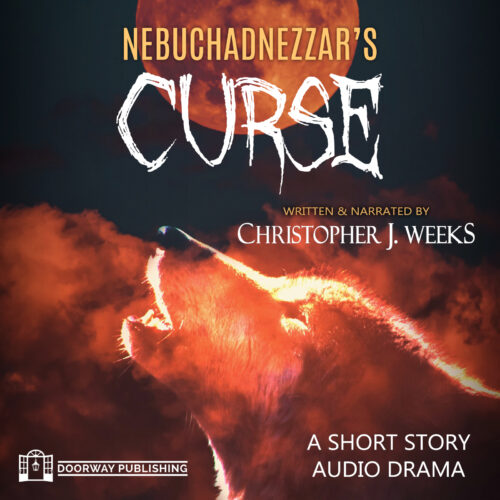
I’m drenched in the world of Christian publishing, both traditional and indie. In the past eight years, I’ve had first-time authors on my podcast, NYT Best-selling authors, USA Today authors, clean and wholesome, dark and edgy, sci-fi, historical, romance, poets, memoirs, and a plethora of other genre artists.
Due to this, I find myself in various groups related to the sub-cultures of Christian publishing. On one end, you have the clean, sweet, and wholesome group. In the middle, you have the on the edge group, and under the bleachers next to Charlie Brown’s Christmas tree, you have the red-headed stepchild of Christian speculative fiction.
Without a doubt, an author, whether newbie or seasoned, will invariably ask a question about writing. I’ve seen and read about it SO MANY TIMES I can give you the top questions.
Mind you, I’ve been in this game for EIGHT YEARS. You may see my responses addressing these issues in fiction, but it applies to non-fiction as well.
These routine questions come up:
- Is it okay if I have sex/sensuality in my book?
- Is it okay if I have swearing in my book?
- Is it okay if I write a speculative fiction story about magic?
- Is it okay if I have violence in my book?
- Is it okay if I write a story involving demons?
- Is it okay if I have {INSERT CONTROVERSIAL TABOO SUBJECT}?
Usually, after these questions are asked, the responses come in… by the dozens. The top two are the ones that REALLY get these conversations flowing.
It is only in the Christian publishing arena that sex and sensuality in books are constantly debated. I can already tell you the two extremes:
- DON’T TALK ABOUT SEX OR SENSUALITY! DON’T DO IT!
- The other end of the spectrum is Christian erotica. (Yes, it is a thing!)
I should also state here that there are nuances to this issue that need to be addressed but for the sake of this article, we’re talking broadly.
Under the swearing question, the responses to this are usually:
- DON’T LET THE CHARACTERS IN YOUR BOOK SWEAR AT ALL! I believe some Christian writers and readers would rather have a guy’s head chopped off and blood squirting out the stump instead of the character saying “Damn!”
- The other extreme is “Swear words are just words. So the [blank] what?”
Let me give it up for my Christian speculative fiction authors. Oh my gosh! You talk about having these authors burned at the stake! Mainstream Christian writers and readers will get the garlic and holy water and throw it at these authors. “Get thee behind me, Satan! Take your witchcraft away!”
This also falls into a subgenre of MORE QUESTIONS
- Should I have dragons in my story? Because some people think if I have dragons in my story, I’m worshiping Satan. You know, that dragon.
(…and let’s face it: if the dragon in the story has a British accent, you can lead people straight to hell right there. You can thank the late Sean Connery for that!)
- Should I write science fiction? Some authors want to explore topics about the implications of artificial intelligence, aliens/UFOs, cloning, chimeras, space exploration, threats of unethical medical science, multiverses, time travel, and a slew of other subjects that have us probe deeper issues behind these topics.
(…and Christians should be the staunchest advocates of scientific inquiry and advancements. Heck, we should be the ones doing the science!)
When it comes to magic, oh my word! Folks really start throwing scriptures and bible verses at you. You have to duck to escape the ink!
Instead of asking if the magic in said story is ‘witchcraft’, some writers and readers just assume that’s what the question refers to. The Christian speculative fiction authors I interview and talk to tackle the topic by making sure it doesn’t even border that as it’s a big no-no.
But even if it did, why avoid it? Why pretend as if witchcraft doesn’t exist? Why pretend as if it’s not reaching out with gossamer threads, coiling around our children?
I’ll never forget when this happened to an author I interviewed. The folks in the group got all in an uproar. I said, “The author is waiting for you with your questions about her story.” I kid you not, NO ONE CONTACTED HER TO ASK HER TO CLARIFY HER POSITION. NO ONE. But in the group, they had already labeled me and her as witches!
Violence is a given. People murder, rob, maim, and abuse in real life. Fiction and non-fiction reflect that reality. If the story includes violence, responders to this question have two thoughts:
- Have the person die (or whatever) off-page, sort of like a Columbo or Murder She Wrote episode. Some looming body, a raised axe, bulging, manic eyes, and some poor stupid victim standing there screaming their heads off while the assailant walks half a centimeter every five minutes before they kill them.
- Let blood bleed from the walls while ripping out the victim’s heart, leaving it pulsing on the ground. The assailant laughs and licks the knife that was plunged into the intestines and…
(oh my gosh, Parker, you’re making me throw up!)
- Should I write about demonic possessions, spiritual warfare, psychological manipulations usually explored in darker fiction genres like horror and thrillers? Uh…yeah? I seem to recall a very prominent verse in Scripture talking about fighting against dark powers, wickedness, principalities. There’s also that little tidbit about a man possessed by a legion of demons. So, and I could be wrong, if the Bible’s mentioning it, why aren’t we?
Among the Christian publishing world, ANY taboo subject is going to get knocked. But, lest I be accused of being biased, let me flip this on its head…
For those Christians who want to write clean, sweet, wholesome without having all the nitty-gritty — they’ll get knocked, too! They’re accused of being soft and too sensitive. Not willing to address the issues of life. Or being too safe.
The motivations really lie in what’s important for the author and their message.
Some choose to not write hard and gritty for a variety of reasons. I know of authors who don’t write in this light because they don’t want to be reminded of a fallen world. Some have been victims of tragedy in the form of abuse, trafficking, murder, suicide, and other vices. And for goodness’ sake! They don’t want to be reminded of it at all.
Some choose to write gritty realism in whatever form or genre it comes in. From what I’ve seen over the years, the reason lies in depicting Christian responses and answers in a world fully depraved.
Whatever the author’s reasons for writing, they need to know the following:
- Some are going to tell you no.
- Some are going to tell you yes.
The conclusion I’ve come to is this: stop asking permission.
You’re not going to please everybody. Somebody is going to have a problem with what you’re writing. They’re going to have a knee-jerk reaction to your message and feel uncomfortable.
One of the facets about my podcast that I love is its variety. One week, I may have a horror novel, the next a sweet romance, followed by historical, a thriller, a memoir. It varies weekly. A lot of that has to do with my own eclectic taste. As a reader, I read books. All sorts of books, Christian and secular. (Except taxes. Kill me now!) My personal tolerance level is high… but that’s me.
Someone else’s isn’t.
If the story that God gives you is yours, then that is what is important. His approval, no one else.
If you just gotta ask for permission, which means ask for opinions, here are my tips:
- Make sure you ask other writers. Don’t ask your cousin who hasn’t written the alphabet, let alone a book.
- Don’t ask church members who YOU KNOW are going to have a problem with your story. Sometimes we set ourselves up for disappointment because we ask people we know who are going to have a problem with it.
- Limit the number of writers you ask for an opinion. I suggest three. For one thing, too many writers involved in your book can soil it. It’s one of the reasons why I don’t do a lot of beta reading for authors because I don’t want MY style in YOUR work. I’d rather just buy it and enjoy your writing.
- At the end of the day, you make the decision. Don’t let someone else’s knee-jerk reaction be yours. Go with what works for your message. Ultimately, you want to be pleased with your story.
- Expect that someone is not going to like it. Get used to it.
After all, as long as you have the Lord’s permission, whose else do you really need?

An off and on Mountain Dew and marshmallow addict who writes to fill the voice the sugar left behind. She is an Author, Speaker, Host of The Write Stuff and the Parker J Cole Show, and CEO of PJC Media Worldwide Network.





